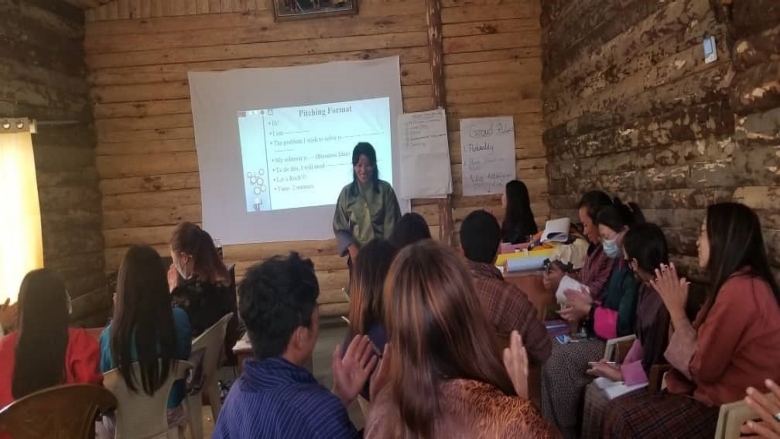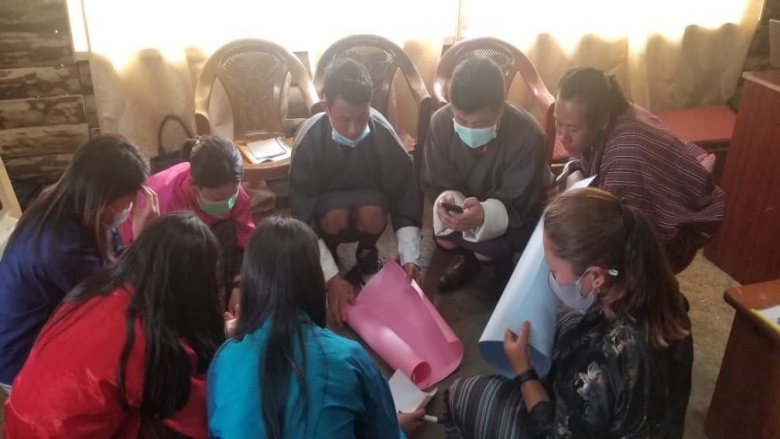“Coming from a family of ten, I had to give up my education due to financial constraints at home. I am now a simple housewife with five children. And my husband is the only source of income,” says a 27-year-old Ugyen Tshomo, resident of Bjagchhog gewog, a small village in the south-west of Bhutan. “Never in my wildest dreams, could I have imagined that I would be blessed with an opportunity to become an entrepreneur and to be financially independent, especially at this age,” she added.

Ugyen is part of a cohort of 500 youth currently participating in a capacity building program under the Youth Employment and Rural Entrepreneurship (YERE) project administered by the World Bank ands implemented by the Ministry of Agriculture and Forests (MOAF), with financial support from the Japan Social Development Fund (JSDF). The project aims to generate new and more productive employment for the poor and vulnerable youth in Bhutan. Considering the country’s cultural traditions and current state of development exacerbated by the Covid-19 Pandemic, youth, especially in rural areas, need support in accessing income-generating opportunities that do not require capital investment and professional education.
Bhutan has made significant progress in poverty reduction and economic growth in the past decade. Poverty has fallen from 36 percent to 12 percent and real GDP has grown at an average annual rate of 7.5 percent since the 1980s. This has largely been driven by rapid development of rural infrastructure, and recent hydropower projects. Despite this growth, the unemployment rate is at a historically high level of 5%, up from 2.7% in 2019. This is mainly driven by overseas returnees and local employees who were laid off due to the economic downturn resulting from the Covid-19 pandemic. The overall youth unemployment rate also increased to 22.6 percent—of which women accounted for more than half of this figure (11.9 percent) in 2019 which is also the highest on available data to date.
Promoting Job creation for young people and investing in human capital has always been a top priority for the Royal Government of Bhutan (RGOB) and has become even more critical since the Covid-19 pandemic started. In July 2020, close to 30,000 Bhutanese were seeking jobs[2], including more than 13,000 who lost jobs domestically, and over 3,000 Bhutanese returnees who lost their jobs abroad. The Government of Bhutan reiterated its focus on generating employment for young people and its need to boost domestic exports for a fast and robust economic recovery.

